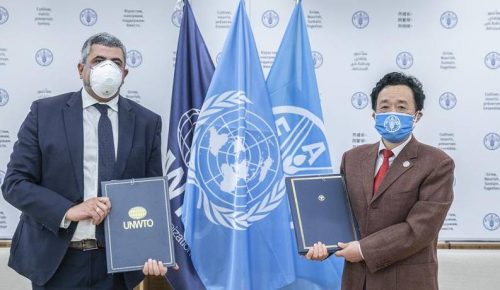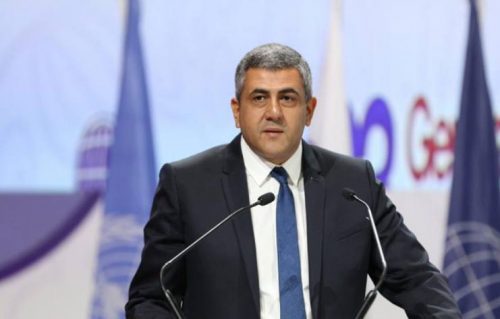Geneva, Switzerland, October 1, 2020 / AIRLINEHUB / Despite the current crisis facing the global aviation industry, its commitment to pursuing sustainability remains strong, particularly as the sector starts to recover. Speaking at the Global Sustainable Aviation Forum, industry leaders reiterated that long-term climate action should be a priority alongside economic recovery in the coming years.
Executive Director of the cross-industry Air Transport Action Group, Michael Gill said: “Air transport is in the midst of the deepest shock in its history. We expect a reduction of up to 4.8 million jobs in the sector by the end of the year and a massive hit to our ability to connect the world. However, as we plan for the recovery of air connectivity, we also must prioritise our environmental progress.
“Our sector has a long-term climate change goal to cut CO2 emissions in half by 2050. With the right help from governments, the energy sector and technologists, we expect that global aviation will be able to hit net zero emissions a decade or so later. Some parts of the world will be able to meet this point earlier and a number of individual companies have already set goals along these lines. To achieve this will require a transition in our energy source from fossil fuel to sustainable aviation fuel, the acceleration of research and development of electric, hybrid and potentially hydrogen aircraft. It will also require a commitment to collaboration going even beyond our current levels. We have the next decade to set the scene for sustainable global connectivity for the next 30-40 years.”
Speaking about the need to focus on sustainability as part of the industry’s long-term recovery from Covid-19, the Director General of Airports Council International, Luis Felipe de Oliveira, said: “The recovery of the aviation industry will be a key driver of the global economic recovery. To ensure that aviation can continue to provide the economic and social benefits, it is crucial that we pursue a green recovery and lay the foundation for a prosperous and sustainable industry for the long term. Airports are central to the interconnected and interdependent aviation ecosystem. Airports and their partners in the aviation industry need the support of appropriate regulation and government policies to facilitate a green recovery and push for real change.”
Civil Air Navigation Services Organisation Director General Simon Hocquard said: “Meeting our ambitious sustainability goals continues to be of paramount importance and will only happen if everyone in the aviation system plays their part. From implementing new operational procedures to adopting the latest technologies, the ATM industry has an important role to play in improving the efficiency of aviation in the near term, before new electric aircraft technologies or zero carbon fuels come on stream.”
Alexandre de Juniac, Director General and CEO of the International Air Transport Association, said: “COVID-19 has devastated the aviation industry. But we are working hard to re-connect the world safely and sustainably. We’re committed to pushing ourselves, our partners, and governments to achieve our carbon targets in a green recovery. But this is not the time for more environmental taxes that punish people for reconnecting with family or who contribute to economic recovery with business travel. For aviation, the keys to combatting climate change remain investments in carbon offsetting, sustainable fuels, and radical green technologies.”
Chair of the International Coordinating Council of Aerospace Industries Associations, Eric Fanning, said: “Manufacturers invest billions of dollars a year to make the next generation of airplanes even more fuel efficient, but disruption from COVID-19 will make it difficult to maintain this level of investment in research and development. Moving forward, government and industry leaders must find new ways to collaborate on funding and developing innovative technologies that will address climate change.”











